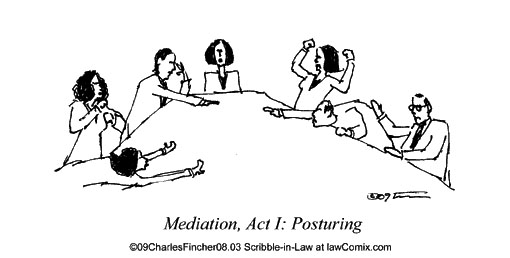The mediator’s role is not to replace a judge, nor does mediation aims to replace the judicial system.

A mediation without attorneys is a mediation against attorneys.
Why against attorneys?
Mediation, as a tool, favors a positive outcome for attorneys and their clients and therefore fulfills their oath.
By default, any tool available yet ignored by an attorney is a disservice to their clients interest.
Mediation does not claim to replace the attorney’s purpose and recognizes their necessity and importance.
Furthermore, the attorney’s role as counsel becomes crucial once mediation has begun.
Attorneys play a decisive role in collaborating towards reaching a mutually satisfactory outcome, or as we like to call it: a win-win solution.
In a conventional setting, attorneys and their clients can select a mediator of their choosing. This is an important decision and care should be taken to designate a reliable and reputable mediator with a firm grasp of the methods so as to achieve the best possible results.
In a judiciary setting, this decision belongs to the judge.
Once an agreement is successfully reached, it is the attorney’s responsibility to finalize the process by drafting an agreement protocol and to submit it to the appropriate judicial outlet for review and approval.